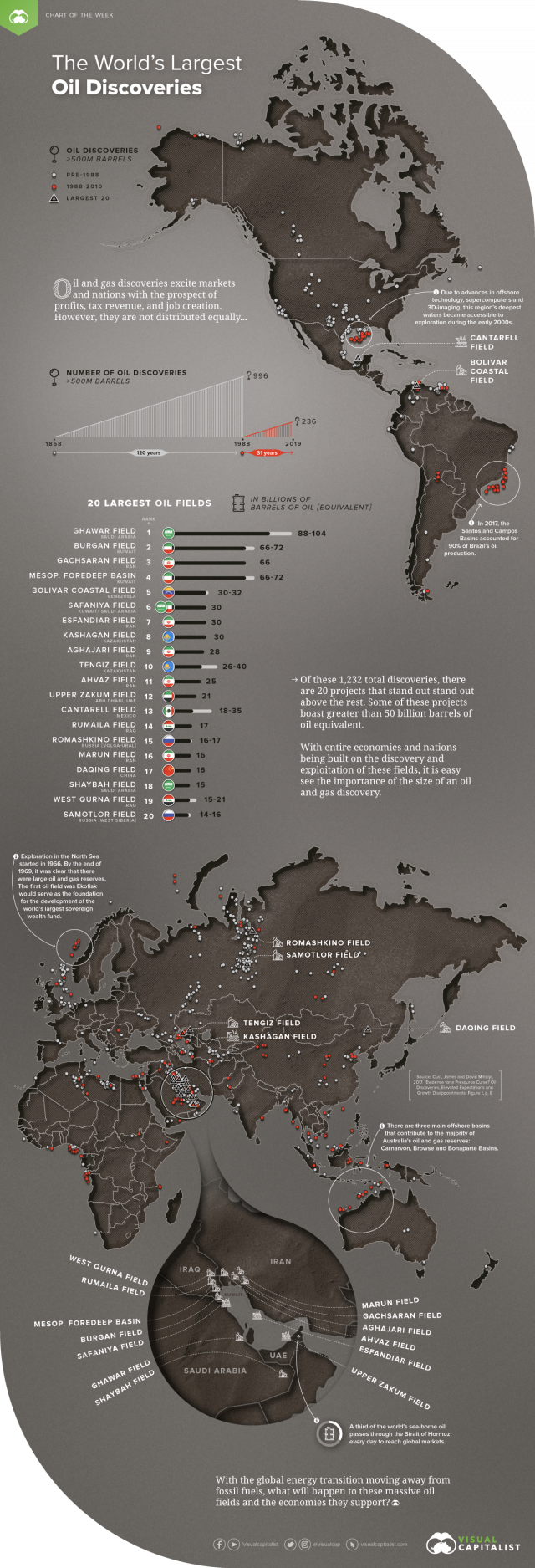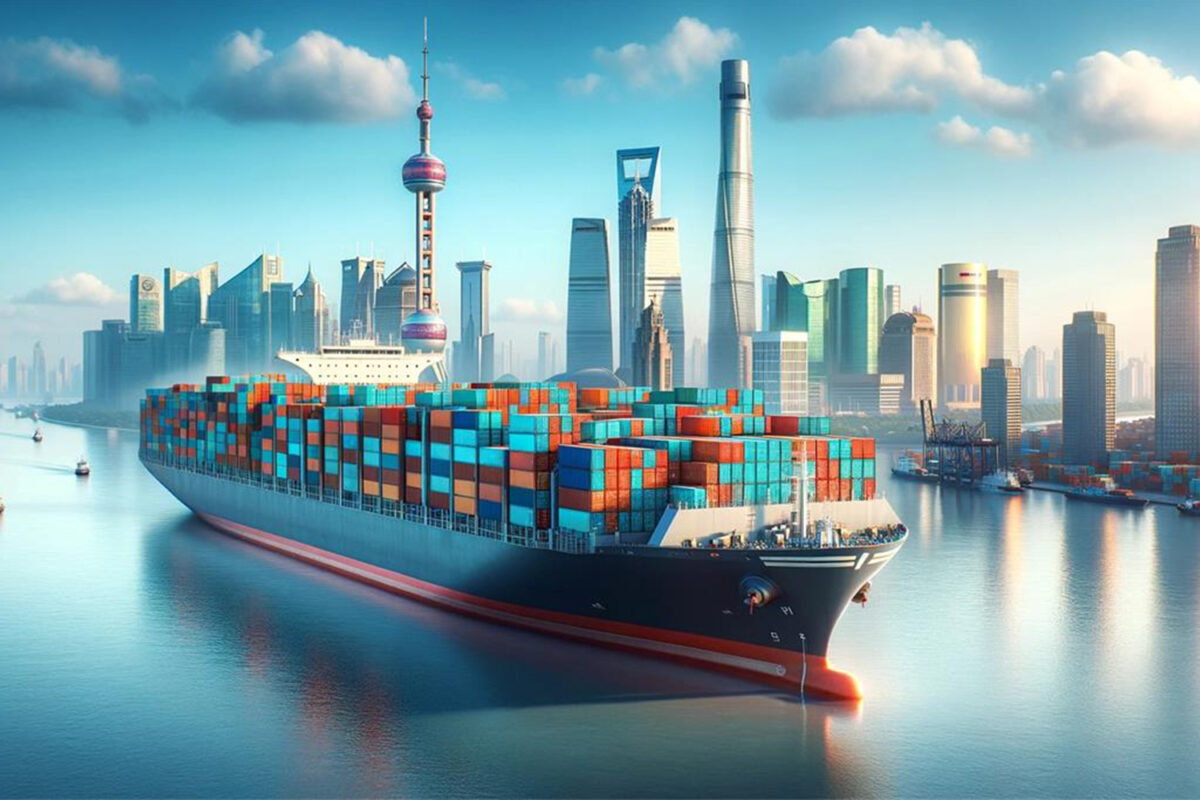By Nicholas LePan for Visual Capitalist
Oil and gas discoveries excite markets and nations with the prospect of profits, tax revenues, and jobs. However, geological processes did not distribute them equally throughout the Earth’s crust and their mere presence does not guarantee a windfall for whatever nation under which they lie.
Entire economies and nations have been built on the discovery and exploitation of oil and gas, while some nations have misused this wealth─or projected growth just never materialized.
Today’s chart comes to us from research compiled by World Bank economist Jim Cust and Natural Resource Governance Institute economist David Mihalyi and it plots major oil discoveries since 1868.
The 20 Biggest Oil Discoveries
This map includes 1,232 discoveries of recoverable reserves over 500 million barrels of oil equivalent (BOE) From 1868 to 2010.
The discoveries cluster in certain parts of the world, covering 46 countries, and are of significant magnitude for each country’s economy. The average discovery is worth 1.4% of a country’s GDP today, based on the cash value from their production or net present value (NPV).
Of the total 1,232 discoveries, these are the 20 largest oil and gas fields:
| Field | Onshore/Offshore | Location | Discovery | Production start | Recoverable oil, past and future (billion barrels) |
|---|---|---|---|---|---|
| Ghawar Field | Onshore | Saudi Arabia | 1948 | 1951 | 88-104 |
| Burgan Field | Onshore | Kuwait | 1937 | 1948 | 66-72 |
| Gachsaran Field | Onshore | Iran | 1927 | 1930 | 66 |
| Mesopotamian Foredeep Basin | Onshore | Kuwait | n/a | n/a | 66-72 |
| Bolivar Coastal Field | Onshore | Venezuela | 1917 | 1922 | 30-32 |
| Safaniya Field | Offshore | Kuwait/Saudi Arabia | 1951 | 1957 | 30 |
| Esfandiar Field | Offshore | Iran | 1965 | n/a | 30 |
| Kashagan Field | Offshore | Kazakhstan | 2000 | 2013 | 30 |
| Aghajari Field | Onshore | Iran | 1938 | 1940 | 28 |
| Tengiz Field | Onshore | Kazakhstan | 1979 | 1993 | 26-40 |
| Ahvaz Field | Onshore | Iran | 1953 | 1954 | 25 |
| Upper Zakum Field | Offshore | Abu Dhabi, UAE | 1963 | 1967 | 21 |
| Cantarell Field | Offshore | Mexico | 1976 | 1981 | 18-35 |
| Rumaila Field | Onshore | Iraq | 1953 | 1954 | 17 |
| Romashkino Field | Onshore | Russia Volga-Ural | 1948 | 1949 | 16-17 |
| Marun Field | Onshore | Iran | 1963 | 1966 | 16 |
| Daqing Field | Onshore | China | 1959 | 1960 | 16 |
| Shaybah Field | Onshore | Saudi Arabia | 1998 | 1998 | 15 |
| West Qurna Field | Onshore | Iraq | 1973 | 2012 | 15-21 |
| Samotlor Field | Onshore |
Russia, West Siberia
|
1965 | 1969 | 14-16 |
The location of these deposits reveals a certain pattern to geopolitical flashpoints and their importance to the global economy.
While these discoveries have brought immense advantages in the form of cheap fuel and massive revenues, they have also altered and challenged how nations govern their natural wealth.
The Future of Resource Wealth: A Curse or a Blessing?
A ‘presource curse’ could follow in the wake of the discovery, whereby predictions of projected growth and feelings of euphoria turn into disappointment.
An oil discovery can impose detrimental consequences on an economy long before a single barrel leaves the ground. Ideally, a discovery should increase the economic output of a country that claims the oil. However, after major discoveries, the projected growth sometimes does not always materialize as predicted.
Getting from discovery to sustained prosperity depends on a number of steps. Countries must secure investment to develop a project to production, and government policy must respond by preparing the economy for an inflow of investment and foreign currency. However, this is a challenging prospect, as the appetite for these massive projects appears to be waning.
In a world working towards reducing its dependence on fossil fuels, what will happen to countries that depend on oil wealth when demand begins to dwindle?
Countries can no longer assume their oil and gas resources will translate into reliable wealth — instead, it is how you manage what you have now that counts.





